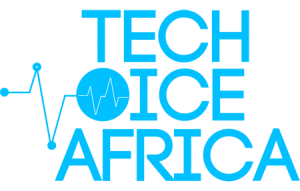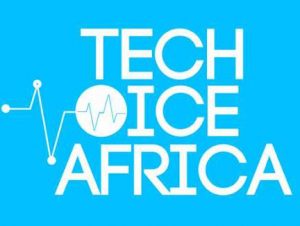Artificial Intelligence (AI) is at the center of the fourth industrial revolution. Top companies around the globe are relentlessly implementing AI initiatives, from Amazon to Google, Facebook to Toyota and beyond. That’s because AI is helping these companies gain greater competitive advantages, and their belief in the technology shows, as the AI market continues to climb into a predicted $36.8bn global market by 2025.

However, AI isn’t meant for only heavyweight companies with a surplus of investment capital at their disposal. Countless small startups have also joined the AI bandwagon on a tighter budget.
In fact, AI can help startups save on costs, and at the same time increase their profit margins.
Small businesses can harness AI to increase the efficiency of various departments, from HR to marketing, branding, production, etc. As such, some of your competitors may already be using AI to gain a competitive edge.
Three ways AI-powered tools can help startups
Increasing profits come as a result of a number of different improvements within the startup. Cutting costs, improving customer relations, marketing, etc., all result in more revenue and profit. AI applications can help in these aspects, which in turn will result in higher margins.
Here are three of the many areas AI can improve, increasing the startup’s profits as a result:
Sales and customer support
AI chatbots: AI chatbots are being used to enhance the operation of businesses in several ways. They are basically designed to generate automated outputs for written or oral requests. Presently, chatbots have grown wildly popular due to their effectiveness in qualifying leads and increasing customers’ engagement with a brand. Employee-facing chatbots have also proved effective in boosting employee engagement and helping them transition into new roles or new locations. AI chatbots can provide an excellent, cost-effective alternative to customer support and HR staff, thereby cutting costs and increasing margins.
AI-based coaching programs for marketers: AI technology is highly effective in analyzing data and recognizing patterns. With AI tools like Gong, Chorus, and others, startups can deduce patterns and strategies from records of successful sales calls to help marketing teams replicate winning strategies. These AI-based tools can help marketing coaching teams decipher patterns of variables such as word choice, sentence sequences, etc., deployed during successful sales calls.
Branding and Marketing
AI tools that expedite the identification of product market fit: With AI attributes such as natural language processing, machine learning, and audience segmentation, startups can easily identify product-market fits much faster. AI platforms that harness these attributes can help companies easily sort out written and verbal feedback from customers in order to identify consumer patterns and determine the prospects of value propositions.
AI-powered design tools: These are highly reliable, cost-effective alternatives to professional graphic designers, thereby reducing the need of significant expenses for such professionals, if not eliminating the need altogether. These AI design tools harness machine learning to function based on best practices, and to provide excellent design element recommendations. In a matter of hours, they can generate brilliant, cost-effective designs for web pages, logo, watermarks, etc.
AI-powered ad analytics tools: This is another highly advantageous AI-based toolset that many companies have deployed to work exploits. For instance, Facebook’s ad analytics tool, known as “look alike audiences”, has helped Facebook increase its revenues consistently over the years. AI-powered ad analytics tools mine data concerning customers and then deduce spending habits and consumer patterns to help streamline ad targets.

AI-powered SEO tools: It’s becoming more crucial for businesses to reach out to their customers through search engines. AI-powered tools can serve in place of SEO specialists to help enhance the visibility of your startup in search engines, thereby reducing costs in that area. For instance, the Google Analytics tool harnesses AI to provide insights to businesses through the Google platform.
AI-based video production tools: Although AI-based video software were introduced some years ago, they’re now more advanced than ever. There are now a slew of video creation platforms that allow you to easily put together high-quality videos for product presentations, how-to contents, etc. These video platforms deploy artificial intelligence and machine learning to compile video clips and image snippets that best represent the ideas in contents. Platforms like Adobe Premiere Pro CC can match colours automatically to ease video editing.
Security
AI-powered threat analysis tools: One of the major areas where AI has been heavily deployed is in cyber-security. With AI analytics tools, security specialists have successfully identified and plugged security breaches on countless occasions. These AI security tools help cybersecurity experts trace out anomalies quickly in systems in order to prompt timely responses.
Biometrics: AI is used to power biometric authentication based on facial recognition. With such capabilities, AI-powered biometrics tools can help provide more complex layers of protection for smart devices and on-premises installations. This can reduce the need for more human security experts, cutting costs and increasing margins.
Are you prepared to join the AI bandwagon?
As we’ve seen so far, there are several budget-friendly AI-based tools that you can deploy to raise the bar of your business operations to remain competitive, while also increasing your margins. As AI technology becomes more advanced, these AI-powered tools will become even more effective and readily available.
By:Ralf Llanasas















